
Economics of Energy & Environmental Policy
Scope & Guideline
Connecting Economic Principles with Environmental Impact.
Introduction
Aims and Scopes
- Energy Economics:
The journal explores various aspects of energy economics, including market structures, pricing mechanisms, and the impact of regulatory frameworks on energy production and consumption. - Environmental Policy Analysis:
Research focuses on the evaluation of environmental policies and their economic implications, addressing how regulations can effectively promote sustainability and mitigate climate change. - Sustainable Energy Transition:
The journal emphasizes studies on transitioning to sustainable energy systems, including renewable energy adoption, energy efficiency measures, and the socio-economic impacts of these transitions. - Climate Change Mitigation:
There is a strong focus on research that addresses strategies for climate change mitigation, including carbon pricing, emissions trading systems, and the role of technology in reducing greenhouse gas emissions. - Socio-economic Impacts of Energy Systems:
The journal examines the broader socio-economic impacts of energy systems, including issues related to energy poverty, access to electricity, and the equity implications of energy policies.
Trending and Emerging
- Energy Poverty and Access:
Recent publications have highlighted the determinants of energy poverty and access to electricity, particularly in developing regions, indicating a growing recognition of social equity in energy policy. - Resilience to Climate Change:
There is an emerging focus on resilience strategies in energy systems, particularly in the context of extreme weather events and climate change impacts on electricity supply. - Technological Innovations in Energy:
Research on the role of technology in enhancing energy systems, such as electric vehicles and renewable energy technologies, is becoming increasingly prominent, reflecting the need for innovation in the energy sector. - Integration of Gender in Energy Policy:
Studies examining the intersection of gender and energy access highlight the importance of inclusive policies in promoting renewable energy adoption and addressing disparities. - Market Design and Regulation for Decarbonization:
Emerging themes include the design of electricity markets and regulatory frameworks that facilitate the transition to low-carbon energy systems, showcasing the need for adaptive policy approaches.
Declining or Waning
- Traditional Fossil Fuel Economics:
Research centered on the economics of fossil fuels, such as coal and oil, has diminished as the global focus shifts toward renewable energy and sustainability. - Narrowly Defined Economic Models:
There appears to be a waning interest in overly simplistic economic models that do not account for the complexities of energy systems and their interactions with environmental policies. - Localized Energy Solutions:
Studies focusing solely on localized energy solutions without considering broader systemic implications may be losing traction as global perspectives gain importance.
Similar Journals
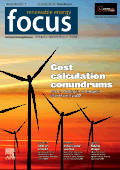
Renewable Energy Focus
Exploring Innovative Pathways in Renewable EnergyRenewable Energy Focus is a premier journal published by Elsevier, dedicated to advancing the field of renewable energy and sustainability. With an ISSN of 1755-0084 and an E-ISSN of 1878-0229, this journal serves as a vital platform for researchers, professionals, and students interested in innovative solutions to energy challenges. Established in 2007, the journal has evolved to become a recognized authority in the subject area, currently ranked in the Q2 quartile of its category for 2023, emphasizing its significance in promoting impactful research. The journal encompasses a wide range of topics, including solar, wind, bioenergy, and sustainable practices that contribute to environmental conservation and energy efficiency. As part of Elsevier's commitment to disseminating high-quality research, Renewable Energy Focus is indexed in Scopus, currently holding a rank of #92/270 in the energy sector, positioning it in the 66th percentile of its field. This journal offers an essential resource for those dedicated to fostering sustainable energy solutions.

INTERNATIONAL JOURNAL OF GLOBAL ENERGY ISSUES
Advancing Dialogue on Renewable and Nuclear EnergyThe INTERNATIONAL JOURNAL OF GLOBAL ENERGY ISSUES, published by INDERSCIENCE ENTERPRISES LTD, stands as a vital platform for disseminating innovative research in the fields of energy engineering, nuclear energy, and renewable sustainability. With ISSN 0954-7118 and E-ISSN 1741-5128, this journal has been catering to the energy sector since 1989, advancing scholarly dialogue through critical analyses and discussions of emerging energy technologies and policies. Though currently categorized in the fourth quartile across various energy-related disciplines, the journal aims to bridge knowledge gaps and offer insights that challenge the status quo. Operating from its headquarters in the United Kingdom and accessible to a global audience, the journal encourages submissions that drive interdisciplinary research and provide solutions for pressing global energy challenges. Researchers, professionals, and students alike are invited to contribute and engage with this prestigious journal to influence the future of energy practices.

Frontiers in Energy Research
Empowering sustainable energy solutions through research.Frontiers in Energy Research is a prestigious open-access journal published by FRONTIERS MEDIA SA, dedicated to advancing knowledge in the diverse fields of energy research. Launched in 2013, the journal has established itself as a pivotal platform for disseminating high-quality research, particularly in areas such as Economics and Econometrics, Energy Engineering and Power Technology, and Renewable Energy, Sustainability and the Environment. With a notable impact factor and impressive quartile rankings, including Q2 in multiple categories and a reputation for rigorous peer review, Frontiers in Energy Research offers researchers, professionals, and students alike a vital resource for exploring the latest innovations and insights in energy studies. Operating from its base in Lausanne, Switzerland, this journal is committed to enhancing open accessibility to relevant research, significantly contributing to the global dialogue on energy solutions and sustainability.
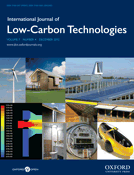
International Journal of Low-Carbon Technologies
Empowering the quest for sustainable practices.International Journal of Low-Carbon Technologies is a premier, peer-reviewed publication dedicated to advancing the field of low-carbon technologies and sustainable practices. Published by OXFORD UNIVERSITY PRESS, this journal serves as a vital resource for researchers, professionals, and students alike, providing insightful research and innovative solutions for a sustainable future. With its ISSN 1748-1317 and E-ISSN 1748-1325, the journal is recognized globally, boasting an impressive impact in its categories, including a Q1 ranking in Architecture and Q2 rankings in both Civil and Structural Engineering and Environmental Science as of 2023. It is open access since 2014, facilitating the dissemination of knowledge to a wider audience, and encourages critical discourse on environmental sustainability across converging disciplines. The journal’s Scopus rankings reflecting its standing—ranked #23 in Architecture (88th percentile) and #130 in Civil and Structural Engineering—underscore its importance in driving forward the scientific agenda in low-carbon technologies. As we journey from 2007 towards 2024, the International Journal of Low-Carbon Technologies remains a cornerstone for research and dialogue in reducing carbon footprints and promoting resilient infrastructure.
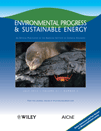
Environmental Progress & Sustainable Energy
Championing research that fuels environmental stewardship.Environmental Progress & Sustainable Energy, published by WILEY, is an influential journal dedicated to the crucial fields of environmental science and sustainable energy. Since its inception in 2009, this journal has consistently aimed to advance knowledge and understanding of innovative approaches and technologies that promote sustainability across various sectors. With an impact factor reflective of its strong academic contributions, the journal is catapulted into Q2 and Q3 quartiles across multiple categories, including Chemical Engineering and Environmental Science, demonstrating its central role in the dialogue surrounding pressing environmental issues. Researchers and professionals can access its cutting-edge studies through both traditional and open access options, facilitating the dissemination of knowledge globally. Addressed to an array of stakeholders from academia and industry alike, Environmental Progress & Sustainable Energy is not only a repository of research but also a platform for transformative ideas that aim to pave the way for a more sustainable future, making it an essential resource for those committed to the interplay of environmental stewardship and energy innovation.
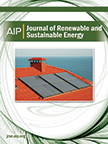
Journal of Renewable and Sustainable Energy
Fostering Knowledge for Sustainable Energy PracticesThe Journal of Renewable and Sustainable Energy, published by AIP Publishing, stands at the forefront of research in the fields of renewable energy and sustainable practices. With an ISSN of 1941-7012, this journal aims to foster innovative research and exchange of knowledge on sustainable technologies and methodologies that contribute to environmental conservation and energy efficiency. Achieving a prestigious Q2 ranking in the category of Renewable Energy, Sustainability, and the Environment, it ranks 135 out of 270 journals in Scopus, signifying its impactful contributions to the field. The journal, active from 2010 to 2024, provides a platform for authors, analysts, and practitioners to disseminate significant findings that can shape future environmental policies and energy frameworks. Although not currently an Open Access publication, it remains an essential resource for researchers dedicated to advancing sustainable development and energy solutions.
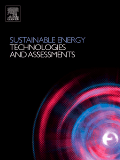
Sustainable Energy Technologies and Assessments
Transforming Energy Assessments for a Greener PlanetSustainable Energy Technologies and Assessments is a prestigious journal published by ELSEVIER, based in the United Kingdom, focusing on the critical field of energy engineering and its intersection with sustainability. Since its inception in 2013, the journal has established itself as a leading platform for disseminating innovative research and assessments of sustainable energy technologies, earning a notable Q1 ranking in both Energy Engineering and Power Technology, as well as Renewable Energy, Sustainability, and the Environment. With an impressive Scopus ranking—#22 out of 272 in Energy Engineering and #40 out of 270 in Renewable Energy—this journal is essential for researchers and professionals seeking to advance their knowledge on cutting-edge developments and assessments in sustainable energy. Although the journal operates on a subscription basis, it remains committed to promoting high-quality research that aligns with global sustainability objectives. Researchers and students alike will find invaluable insights and data that shape the future of renewable energy technologies within these pages.

Journal of Energy Markets
Advancing Knowledge in Energy Market StrategiesJournal of Energy Markets, published by Incisive Media, is a vital platform dedicated to advancing the understanding of energy market dynamics, with an ISSN of 1756-3607 and an E-ISSN of 1756-3615. Established in the United Kingdom, the journal explores the intersection of economics, energy, and strategic management, serving as a key resource for researchers, professionals, and students alike. While the journal is currently categorized in the Q4 quartile across relevant fields such as Economics and Econometrics, it aims to stimulate scholarly dialogue, enhance empirical research, and present innovative methodologies in the rapidly evolving energy sector. Despite its nascent impact factor in 2023, the Journal of Energy Markets remains committed to publishing high-quality articles that address critical issues and trends affecting the global energy landscape. The journal is essential for those looking to deepen their knowledge and contribute to ongoing debates within this important field.

OPEC Energy Review
Empowering Research in the Energy SectorOPEC Energy Review, published by Wiley, is a leading journal dedicated to advancing knowledge in the fields of economics and energy studies. With its ISSN 1753-0229 and E-ISSN 1753-0237, this journal serves as a vital resource for researchers, professionals, and students interested in the dynamic interplay between energy policies, market trends, and economic frameworks. Positioned in the Q3 tier for both Economics and Econometrics and Energy (miscellaneous) categories as of 2023, the journal highlights its commitment to addressing contemporary issues in energy economics. The OPEC Energy Review aims to foster scholarly dialogue through rigorous peer-reviewed articles and comprehensive analyses, contributing to the understanding of global energy markets and their economic implications. For anyone looking to delve deeper into energy economics, this journal stands as a key platform for innovative research, fostering a well-rounded view of current challenges and opportunities in the sector.

AIMS Energy
Pioneering Research in Renewable Energy and BeyondAIMS Energy is a leading academic journal published by the American Institute of Mathematical Sciences (AIMS), dedicated to advancing the field of energy research. With a strong commitment to Open Access since its inception in 2013, this journal offers a platform for researchers, professionals, and students to share innovative findings and enrich the discourse in crucial areas such as Energy Engineering and Power Technology, Fuel Technology, and Renewable Energy, Sustainability and the Environment. Recognized for its quality, AIMS Energy holds a respectable impact with a Q3 ranking in multiple categories as of 2023, and it ranks within the top half of its peers in the Scopus database. The journal's objective is to disseminate high-quality research that addresses contemporary challenges in energy and offers sustainable solutions. By fostering collaboration and discussion among various stakeholders, AIMS Energy plays a critical role in shaping the future of energy technologies and policies.